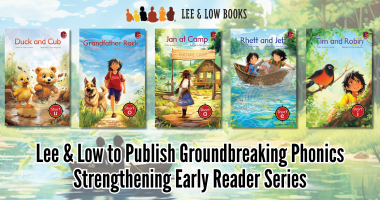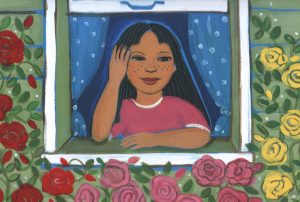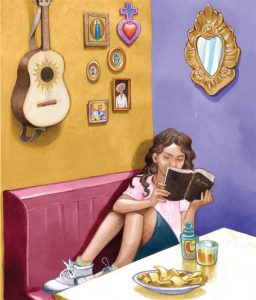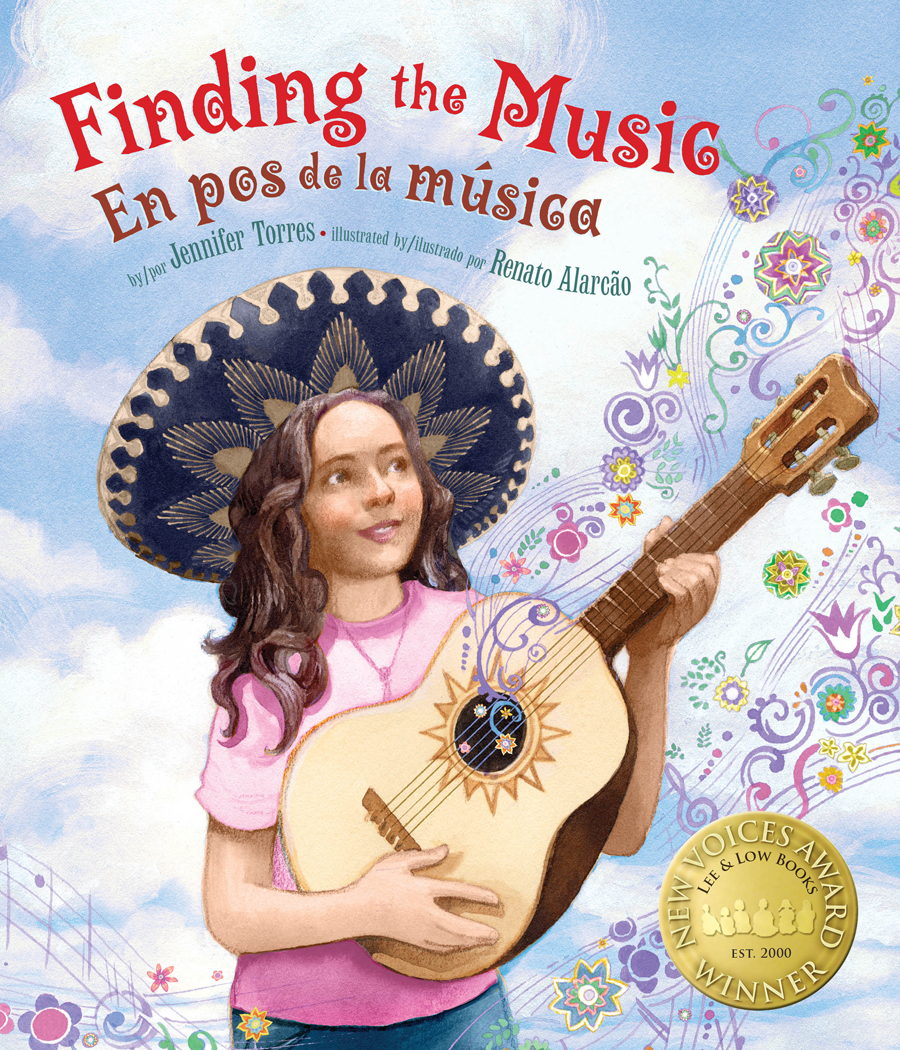 It’s August and with the New Voices Award deadline approaching in just seven weeks, participating writers may be starting to feel the heat. No sweat! The New Voices Award blog post series has got you covered from the summer sun of stress.
It’s August and with the New Voices Award deadline approaching in just seven weeks, participating writers may be starting to feel the heat. No sweat! The New Voices Award blog post series has got you covered from the summer sun of stress.
At this stage, you’ve probably got your cover letter and story written down. You’ve also read July’s post on the importance of voice in a story and made your narrative even more engaging to readers. Congrats! That’s two essential checks on the New Voices To-do list –but don’t seal the envelope just yet! Now that your story is down it’s time to begin the revision process.
Revision is an important part of the writing experience. It’s about revisiting what you’ve written, identifying what needs to be strengthened, and rewriting to improve your story. Every writer’s revision process is different so to provide some guidance we interviewed two New Voices Award Winners, Linda Boyden (The Blue Roses) and Jennifer Torres (Finding the Music/ En pos de la musica), about how their revision processes helped them prepare their stories for the New Voices Award.
What inspired you to write your story? Did you write it specifically for the New Voices Award, or was it something you were working on already?
Linda Boyden: In 1978 my maternal grandfather, Edward Dargis, passed away. I was about to have my last baby and couldn’t attend his funeral 3,000 miles away. Until I went to college, we had lived in the same neighborhood and were very close. He worked at a factory but was happiest in his garden. A few nights after he passed, he came to me in a dream. He stood in a beautiful flower garden, and like Rosalie’s Papa his face was “smooth, not wrinkled.” In the dream he told me to stop grieving because he was happy. From that point on I knew I needed to write this story as a gentle way to broach a tough topic.
Many years later when my husband’s company moved us to Maui, I left teaching and decided to follow my dream of becoming a writer. I enrolled in a community college writing course. The instructor assigned us the task of writing 1,000 words a week so the first draft of The Blue Roses was actually homework! When he returned it he commented, “I wanted to like Rosalie more, but I couldn’t.” That hurt so I put the manuscript away. Months later I rethought and revisited. By the time I learned of Lee & Low’s New Voices Award, the manuscript had been through a few revisions. After winning, it went through a few more with my careful editors, Laura Atkins and Louise May.
Jennifer Torres: Finding the Music was inspired by my own childhood—growing up in a noisy family, being close to my grandparents and their stories, hearing mariachi music playing in the background of weddings, birthday parties and other special celebrations. It was also inspired by stories I covered as a newspaper reporter: one, an obituary for a farm worker who gave free mariachi lessons to neighborhood kids on his time off, and another about the sense of community that grew around the mariachi program at Cesar Chavez High School in Stockton, California. I started working on the book long before I learned about the New Voices Award. After researching publishers, I knew I wanted to submit my manuscript to Lee & Low. I went to the website to learn more about the company and to review submission guidelines—that’s when I discovered the award.
What does your revision process look like? At what point in your writing process do you begin making changes?
LB: I write at a certain time every day. When working on a picture book, I rough it out on paper and revisit the next morning. I revise the previous work then create new. Next day, repeat. When it’s almost “good” I print it, read it aloud, and revise more. I love the process: revision is the heart of writing.
JT: I always catch myself wanting to revise as I go, making changes today on what I wrote yesterday. But I try to resist! It’s too easy for me to get hung up on small details that way. I think I do much better work when I’m revising a finished draft. I can step back with a sense of the story’s full scope. The problems stand out more clearly, and, often, so do the solutions.
How often do you share your works-in-progress with other people? Are you part of a critique group or is there someone specific you rely on for feedback?
LB: I’ve been part of many critique groups over the years. Now, I share with trusted individuals only and generally online. I read most rough drafts aloud to my husband who hears the mistakes. I also share all my picture book manuscripts with one young granddaughter who also has remarkable insights.
JT: I’m not part of a critique group-I think it could be good though! I do have a few friends who I ask to read drafts after I’ve finished a couple of rounds of revision on my own. They’re talented writers—whose styles and voices are nothing like mine—and they give thoughtful and honest feedback. It’s super helpful to me to see my work from someone else’s perspective, especially when the story has been all alone in my head until then.
What is something surprising you learned while preparing your story for publication?
LB: The most surprising part was discovering that authors and illustrators seldom meet, or even have contact. My Lee & Low editors had no problem with illustrator, Amy Cordova, and me communicating. Not only did this collaboration strengthen our book, Amy and I have remained friends.
JT: During the publication process, my editor let me know that Finding the Music would be bilingual (It was initially English-only). This meant some extra editing and paring down, but I was really excited about the decision! What was surprising to me, though, was how adding the Spanish text added so much dimension to the book as a whole. I can’t imagine it any other way now, and it’s a good reminder of how the collaborative nature of the process can do so much to enrich storytelling.
How has winning New Voices Award changed the way you write or revise stories?
LB: Winning the first New Voices Award gave me something I lacked as a writer: self-confidence. Though I understood picture books, I had no training in becoming a writer other than the one community college course mentioned above. Winning also gave me the opportunity to learn from the wonderful editorial staff at Lee & Low Books.
JT: Coming from a newspaper background, I already had big appreciation for editing and revising as part of the writing process. But at a newspaper, it happens so fast. Winning the New Voices Award and preparing Finding the Music for publication helped me realize how valuable it can be to step back from a project, and approach it again weeks (or even months) later with fresh eyes and perspective.
The Blue Roses by Linda Boyden is available now!
Finding the Music/ En pos de la musica by Jennifer Torres is available now!
For more details about submitting to the New Voices Award please visit the New Voices Award page.












